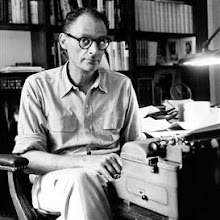 Boris Leonidovich Pasternak (10 February 1890 – 30 May 1960) was a Nobel Prize-winning Russian and Soviet poet, novelist and translator of Goethe and Shakespeare. In Russia, Pasternak is most celebrated as a poet. My Sister Life, written in 1917, is arguably the most influential collection of poetry published in the Russian language in the 20th century. In the West he is best known for his epic novel Doctor Zhivago, a tragedy whose events span the last period of the Russian Empire and the early days of the Soviet Union. It was first translated and published in Italy in 1957. He helped give birth to the dissident movement with the publication of Doctor Zhivago.
Boris Leonidovich Pasternak (10 February 1890 – 30 May 1960) was a Nobel Prize-winning Russian and Soviet poet, novelist and translator of Goethe and Shakespeare. In Russia, Pasternak is most celebrated as a poet. My Sister Life, written in 1917, is arguably the most influential collection of poetry published in the Russian language in the 20th century. In the West he is best known for his epic novel Doctor Zhivago, a tragedy whose events span the last period of the Russian Empire and the early days of the Soviet Union. It was first translated and published in Italy in 1957. He helped give birth to the dissident movement with the publication of Doctor Zhivago.Pasternak was born in Moscow on 10 February, into a wealthy Russian-Jewish family. His father was the famous artist, Leonid Pasternak, professor at the Moscow School of Painting, Sculpture, and Architecture, and his mother was Rosa (Raitza) Kaufman, a concert pianist. Pasternak was brought up in a highly cosmopolitan and intellectual atmosphere: family friends and regular visitors to his childhood home included pianist and composer Sergei Rachmaninoff, composer and mystic Alexander Scriabin, existentialist Lev Shestov, poet Rainer Maria Rilke, and writer Leo Tolstoy. Pasternak aspired first to be a composer, turned next to philosophy and then eventually to writing as his vocation.
Inspired by his neighbour Alexander Scriabin, Pasternak resolved to become a composer and entered the Moscow Conservatory. In 1910 he abruptly left the conservatory for the University of Marburg, where he studied under Neo-Kantian philosophers Hermann Cohen and Nicolai Hartmann. Although invited to become a scholar, he decided against making philosophy a profession and returned to Moscow in 1914. His first poetry collection, influenced by Alexander Blok and the Russian Futurists, was published later the same year.
Pasternak's early verse cleverly dissimulates his preoccupation with Kant's ideas. Its fabric includes striking alliterations, wild rhythmic combinations, day-to-day vocabulary, and hidden allusions to his favourite poets like Rilke, Lermontov and German Romantic poets.
Pasternak spent the summer of 1917 living in the steppe country near Saratov, where he fell in love. This passion resulted in the collection My Sister Life, which he wrote over a period of three months, but was too embarrassed to publish for four years because of its novel style. When it finally was published in 1921, the book revolutionised Russian poetry. It made Pasternak the model for younger poets, and decisively changed the poetry of Osip Mandelshtam, Marina Tsvetayeva and others.
During the great purges of the later 1930s, Pasternak became progressively disillusioned with Communist ideals. Reluctant to publish his own poetry, he turned to translating Shakespeare (Hamlet, Macbeth, King Lear), Goethe (Faust), Rilke (Requiem für eine Freundin), Paul Verlaine, and Georgian poets. Pasternak's translations of Shakespeare have proved popular with the Russian public because of their colloquial, modernised dialogues, but critics accused him of "pasternakizing" the English playwright.
As the book was frowned upon by the Soviet authorities, Doctor Zhivago was smuggled abroad by his friend Isaiah Berlin and published in an Italian translation by the Italian publishing house Feltrinelli in 1957. The novel became an instant sensation, and was subsequently translated and published in many non-Communist bloc countries. In 1958 and 1959, the American edition spent 26 weeks at the top of The New York Times' bestseller list.
Pasternak's post-Zhivago poetry probes the universal questions of love, immortality, and reconciliation with God. Pasternak died of lung cancer on 30 May 1960. Despite only a small notice appearing in the Literary Gazette, thousands of people traveled from Moscow to his funeral in Peredelkino.

Borisz Leonyidovics Paszternak (Moszkva, 1890. február 10. – Peregyelkino, 1960. május 30.) Nobel-díjas orosz költő, esszéíró, műfordító, író.
Jómódú zsidó családban született, a nagyrabecsült művészettörténet és szépművészet professzor Leonid Pasternak és a híres koncertzongorista művésznő, Rosa (Raitza) Kaufman fia. Zeneszerzőnek készül, de történelmet és filozófiát hallgat a moszkvai egyetemen. 1912-ben a németországi Marburgba utazik. Első verseskötetén már látszik páratlan természetleíró képessége, úgy festi a kertet, a szelet, az esőt, a tavaszt, hogy azok róla, a természetben élő, ám a természetet kultúrává nemesítő emberi lényről valljanak. Munkatársa lesz Majakovszkij avantgardista folyóiratának, a Lefnek. Az októberi forradalmat helyesnek tartja, tisztítótűznek nevezi.
Az 1948 és 1955 között megalkotott nagyregényében, a Zsivago doktorban (ismert filmváltozata a Doktor Zsivágó) az 1903 és 1929 közé eső korszak, továbbá a háborús évek orosz történelmének átfogó képét kívánta megrajzolni. 1957-ben kijuttatta regényét az országból, ami meg is jelent Olaszországban és több más nyugati országban is, hatalmas világsiker lett, 26 héten át vezette a The New York Times besztszeller listáját. Amikor neki ítélték a Nobel-díjat, negatív lejáratókampány indult ellene. Művét szemétnek, őt magát árulónak titulálták. Belső emigránsnak nevezték, hozzáfűzve, hogy jobb lenne, ha valódi emigráns lenne belőle. Válaszút elé állították Paszternakot: vagy lemond a díjról, vagy száműzik hazájából. Az előbbit választotta.
Paszternak 1960. május 30-án peregyelkinói otthonában húnyt el.

















.jpg)


















Nincsenek megjegyzések:
Megjegyzés küldése